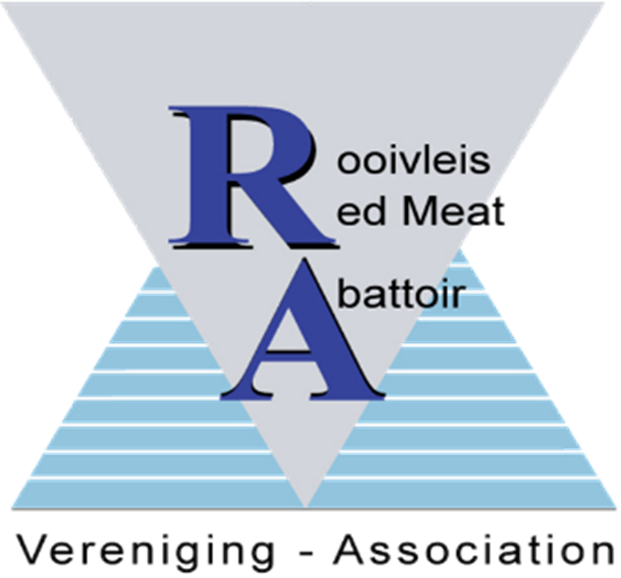Abattoir Membership

Background
The RMAA (Red Meat Abattoir Association) is a representative forum for abattoir owners in South Africa. The abattoir industry is responsible for the conversion of livestock to meat. This process remains critical to ensure a safe and wholesome product to consumers. The Meat Safety Act, 2000 (Act no. 40 of 2000) addresses measures to promote the safety of meat and animal products and to establish and maintain Essential National Standards in respect of abattoirs.
The RMAA is an independent membership-based organisation, which was established in February 1991. Prior to the deregulation process, the abattoir industry comprised mainly of larger abattoirs with high throughput. The deregulation process resulted in an increase in the number of high and low throughput abattoirs.
Mission
We serve abattoir owners by:
- providing specialised training and technical support,
- distributing relevant information and
- representing owner’s interest
to secure standards of meat safety and quality to the benefit of the red meat industry and the consumer.
Strategic Objectives
- Promote meat safety and Essential National Standards as provided for in the Meat Safety Act, 2000 (Act no.
40 of 2000). - Provide applicable training to ensure the highest standards of animal handling and meat safety and quality.
- Contribute to the development and implementation of hygiene management programs in abattoirs.
- Participate actively in the establishment of the skills development framework in the meat industry.
- Represent the interests of members on forums relating to the abattoir industry.
- Assist in the enhancement of meat hygiene awareness in rural communities.
- Create an environment conducive to the continuing education of abattoir personnel.
- Liaise with governmental and private stakeholders in the interest of common goals.
RMAA Membership Benefits
The Red Meat Abattoir Association is a representative organisation for the red meat abattoir industry. Membership
to the RMAA is voluntary and the benefits include:
- One day slaughter technique training provided at a substantially reduced cost
- The following services are provided to RMAA members at preferential:
- Slaughter technique training
- Slaughter assistance
- Implementation and support of Food Safety Systems including HMS
- Food Safety Audits including HAS
- Sampling and Analysis
- Operational support
- Skills programme training
- Learnerships
- Attendance of annual congress – 1st attendee free; 2nd attendee at a reduced cost
- Access to technical information
- Access to specialised personnel
- Representation of industry interests on governmental and industry boards and organisations
- Advertising in the RMAA diary and newsletters at reduced costs
Services
Support Services
- Food Safety Management Systems
- HMS Hygiene Management System
- HACCP Hazard Analysis Critical Control Point
- ISO 22000Food Safety Management System
- ISO 9001:2000 Standard for Quality Management Systems
- ISO 14000 Environmental Standards
- ISO 18000 Occupational Health & Safety
- Laboratory Sampling
- Audits
- Skills Development Facilitation
- Operational Support
- Slaughter Assistance
- Slaughter Techniques Training
- Beef
- Sheep
- Pig
- Horse
- Game
- Ostrich
- Abattoir Start-Up (Trial Slaughter)
- Price Information System (RMAA works in conjunction with the JSE)
- Salary Survey
- RMAA Workshops, National and Regional Meetings
- RMAA Annual Conference and Congress
- Daily production record keeping
- Post and job descriptions of workers
- Dressing evaluation
- Hide and skin Evaluation and Damage Control
- Offal handling: primary and secondary
- Promotion and application of technology
- Control of production procedures
- Operational impact of regulatory aspects
- Water & Electricity consumption
- Cleaning agents usage
- Saw blade usage
- Effectiveness of stunning
- Cleaning & disinfection
- Equipment Evaluation
- Export requirements
- Environmental standards and control
- Environmental Impact Assessments (EIS’s)
- Modular Abattoir Plans
- Layout & Design Effectiveness
- Operator Certification
- Stunning & Bleeding for Non-Abattoirs
- Management Tools
- Posters
- Research and Guidelines
Skills Programmes Training
- Credit Bearing (AgriSETA)
- HMS & HACCP (including ISO / FSSC 22000)
- Food Safety Management Systems (FSMS) Awareness
- Introductory Abattoir Hygiene (IAH)
- Hygiene Awareness (HAW)
- HIV Awareness
- Non-Credit Bearing
- RMAA Hygiene Awareness
- Practical Animal Handling (PAH)
- Practical Abattoir Skills (PAS)
- ISO Bridging
- Food Safety Internal Auditors Course
- Food Safety Lead Auditors Course (SAATCA Accredited)
- Meat Inspector (Refresher)
Learnership Training
- Credit Bearing
- National Certificate: General Abattoir Processes
- National Certificate: Abattoir Slaughtering Processes
- Further Education and Training Certificate: Meat Examination
- Further Education and Training Certificate: Meat Classification
- Non-Credit Bearing
- Further Education and Training Certificate: Meat Examination (6 months)
Industry Representation
The board and management represent the abattoir industry on the following forums:
- Red Meat Industry Forum (RMIF)
- Red Meat Research and Development Trust (RMRDT)
- Livestock Welfare Co-ordination Committee (LWCC)
- Meat Industry Trust (MIT)
- Department of Agriculture, Forestry and Fisheries (DAFF)
- National Abattoir Rating Scheme Workgroup (NARS)
- Meat Classification Standards Committee
- Abattoir Industry Advisory Committee (AIAC)
- Coordinating Committee for Meat Industry Training (CCMIT)
- Livestock and Animal Feeds Industry Liaison Committee
- South African Pork Producers Organisation (SAPPO)
- National Pork Health Monitoring Committee
- South African Veterinary Public Health Association (SAVPHA)

